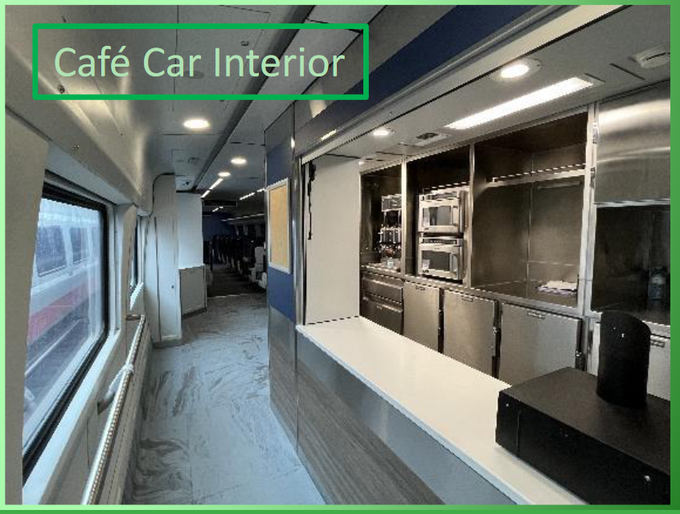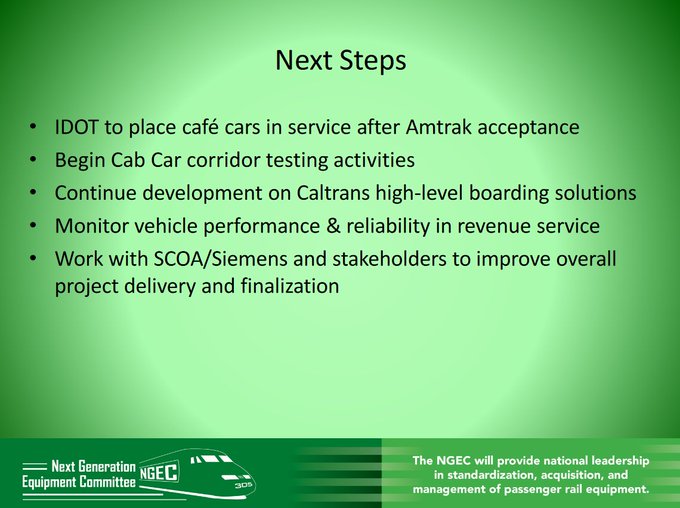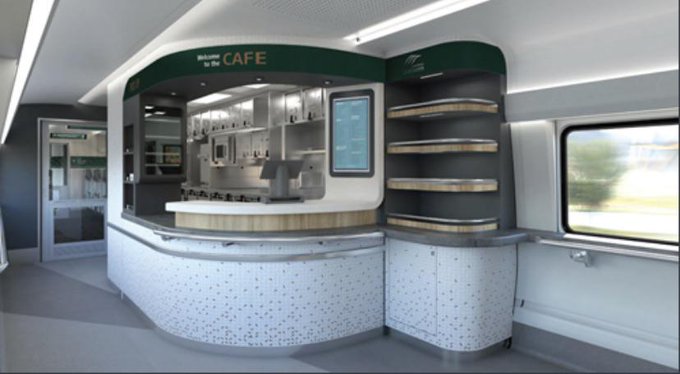102nd Legislature, Week 45: The House Hears Public Transit Testimony
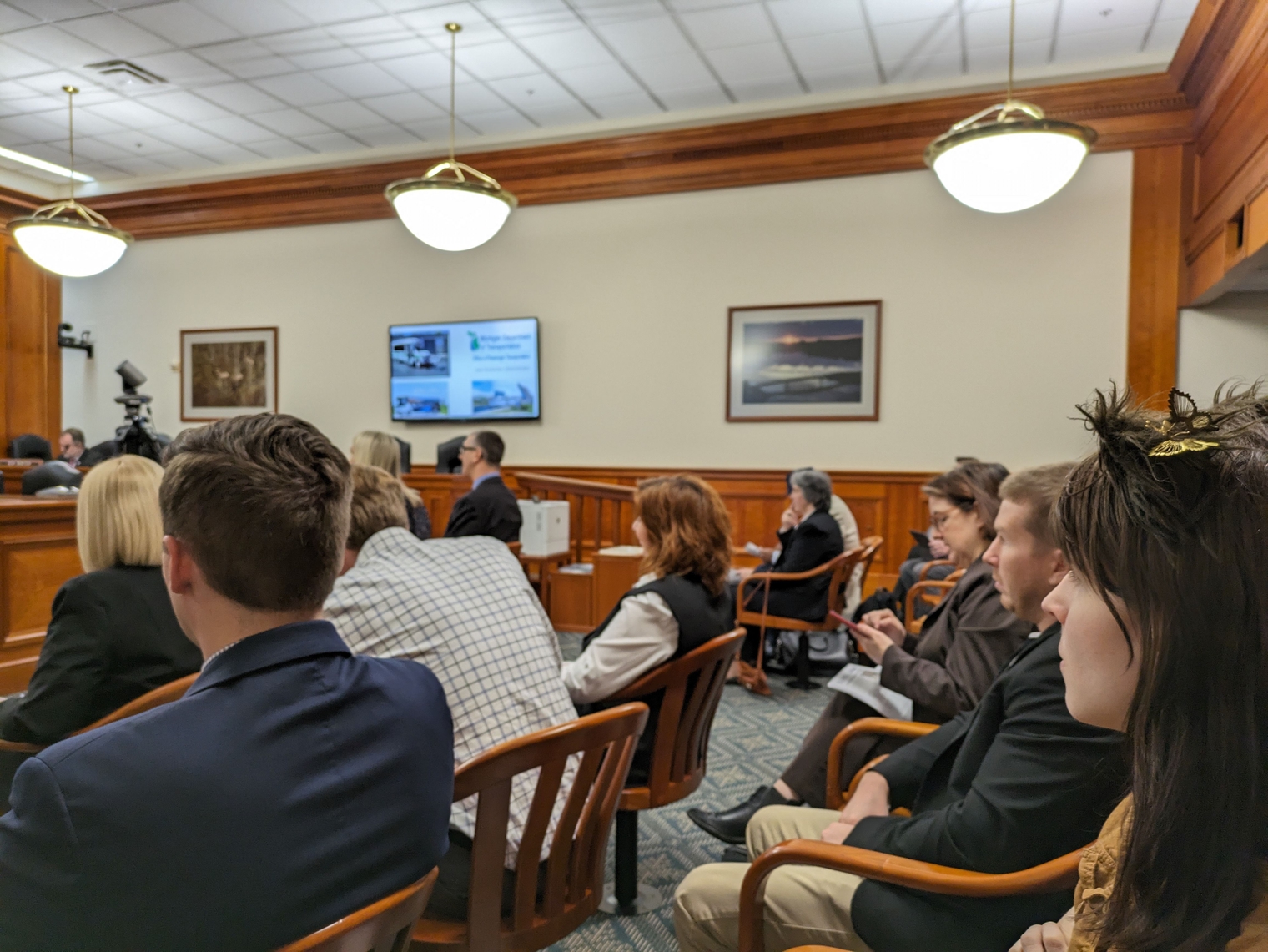
I attended this meeting in person. Stakeholder and public turnout was incredibly strong — House staff had to set up an overflow room for attendees to watch the livestream.
On Wednesday, March 13th, The House Appropriations Subcommittee on Transportation heard testimony from the MDOT Office of Passenger Transportation (OPT), the MDOT Office of Rail, SMART on behalf of the Michigan Public Transit Association (MPTA) , Transportation Riders United (TRU) , the Michigan Association of Railroad Passengers (MARP) , and Amalgamated Transit Union (ATU) locals. Additional speakers were on the agenda, but were unable to testify due to time.
Many of the same talking points raised at last year’s transit provider testimony meeting were raised again this year.
The full 2024 Appropriations subcommittee meeting is available on House TV . Clips embedded in this writeup are edited for time.
MDOT’s Office of Passenger Transportation
Jean Ruestman, OPT Administrator, gave an overview of the office’s primary functions. The OPT oversees distribution of state and federal funds for local bus operations, capital investments, marine passenger services (ferries), intercity bus services, and rideshare/vanpool services ( MichiVan ).
Ruestman mentioned in her presentation that the state subsidizes intercity bus services within northern Michigan. These routes are contracted out to Indian Trails, a Michigan-based provider, and include the once-daily bus to Traverse City and overnight service across the Upper Peninsula among others. Indian Trails is the sole provider of intercity transportation for many smaller Michigan communities; Flix/Greyhound and other larger private carriers do not operate north of the I-96/I-69 corridor as it is not profitable for them to do so.
Compare the Indian Trails system map (above) to the Flix/Greyhound system map (below).
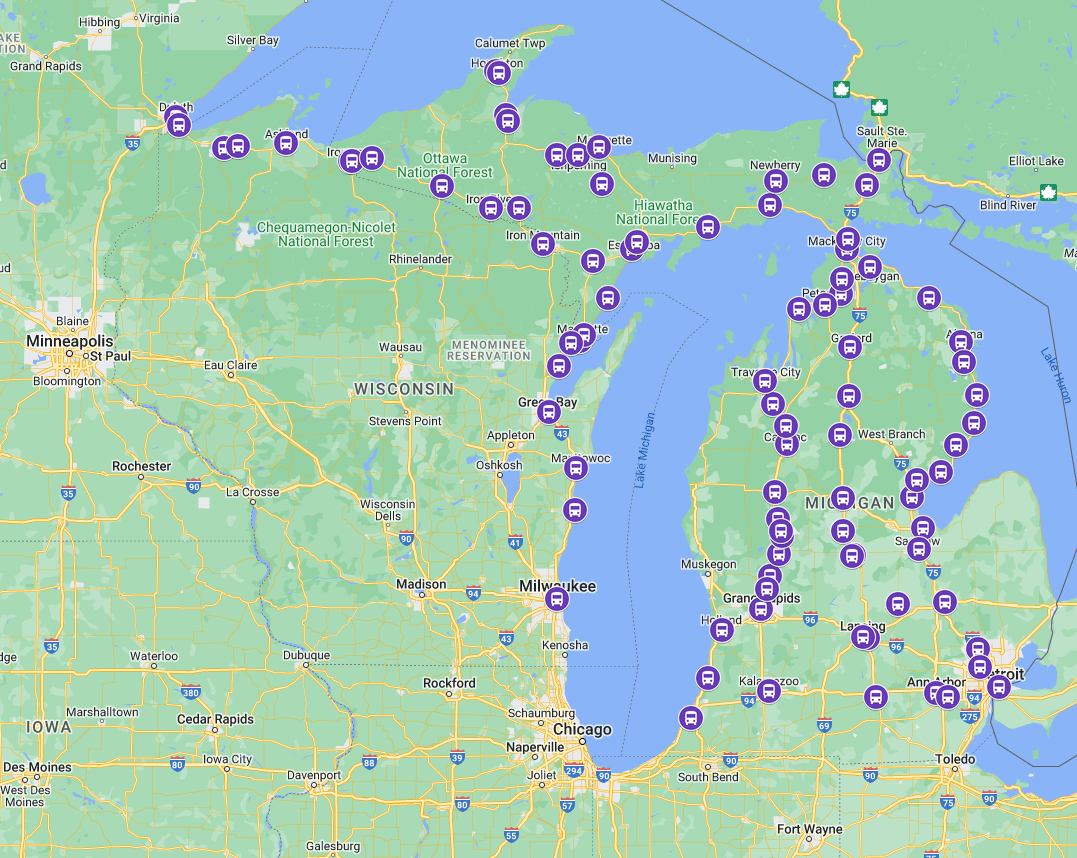
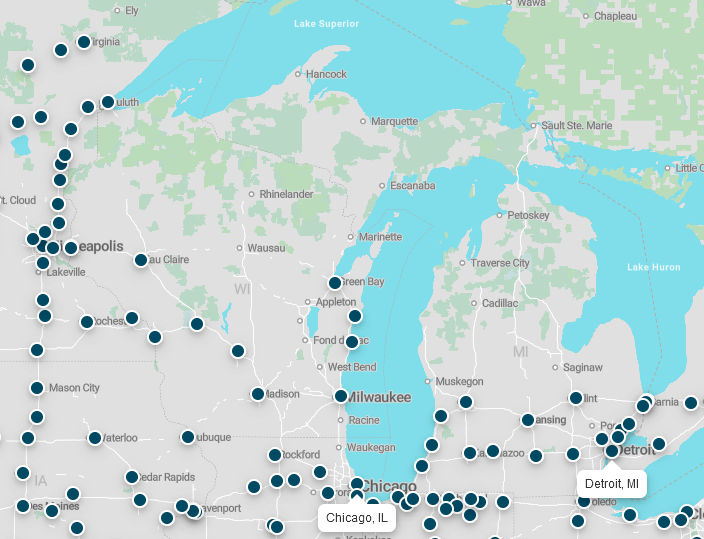
Ruestman further described ongoing efforts making use of federal SMART grants to develop communications and vehicle tracking technologies for rural agencies such as GTFS feeds (i.e., what you see in Google Maps, Apple Maps, and third-party apps like the Transit App when you search for transit directions). Many of these smaller agencies are still entirely phone-based with no ability to track a vehicle or reserve a ride online.
That’s SMART as in Strengthening Mobility and Revolutionizing Transportation, not SMART as in the Suburban Mobility Authority for Regional Transportation, or SMART as in the Sheet Metal, Air, Rail, and Transportation Workers union, or any of the other seemingly endless backronyms that spell SMART in the transpo world
Additionally, Ruestman emphasized the critical importance of maintaining Local Bus Operating Assistance (LBO) in the FY2024-25 state transportation budget , as opposed to the effective $40M cut which would result from enacting the Executive budget recommendation. Bus procurement is also becoming more difficult due to ongoing supply chain issues and price increases.
“I’ve already heard from a couple transit agencies that [the decrease in LBO] will be devastating. Many of them will probably have to cut services and possibly cut employees. It’s definitely what I would consider a crisis for the transit agencies.” – Jean Ruestman, Office of Passenger Transportation
Rep. Hood (D-Grand Rapids) asked Ruestman to clarify MDOT’s process for applying to competitive federal grants.
Two days following this committee meeting, the Midwest Interstate Passenger Rail Commission (MIPRC), of which Michigan is a member, won a two-year Interstate Rail Compacts grant of up to $300,000 from the Federal Railroad Administration. This funding will aid MIPRC in applying for competitive federal grants in the future.
MDOT’s Office of Rail
Peter Anastor, Director of the Office of Rail, shared an update on passenger and freight operations in Michigan as well as future development plans. All three of Michigan’s existing state-supported Amtrak routes were selected for the Corridor ID program to study frequency and infrastructure enhancements, in addition to a Detroit to Toledo study on which Ohio is taking the lead. Ridership on our existing Amtrak routes continues to recover, with Blue Water ridership increasing 16.4% and Wolverine ridership increasing 14.5% in FY23 . Additionally, Anastor confirmed that the new Venture café cars will enter service on Amtrak Midwest, including Michigan, this fiscal year.
THE NEW CAFÉ CARS ARE COMING
Looks like Illinois Amtrak routes are getting them first
February 20, 2024 • 5:09 pmDecember 16, 2022 • 2:07 pmIt's a half-win! It's been announced, but won't be in service until 2026. (Possibly later given the teething issues they've had with rolling these cars out)
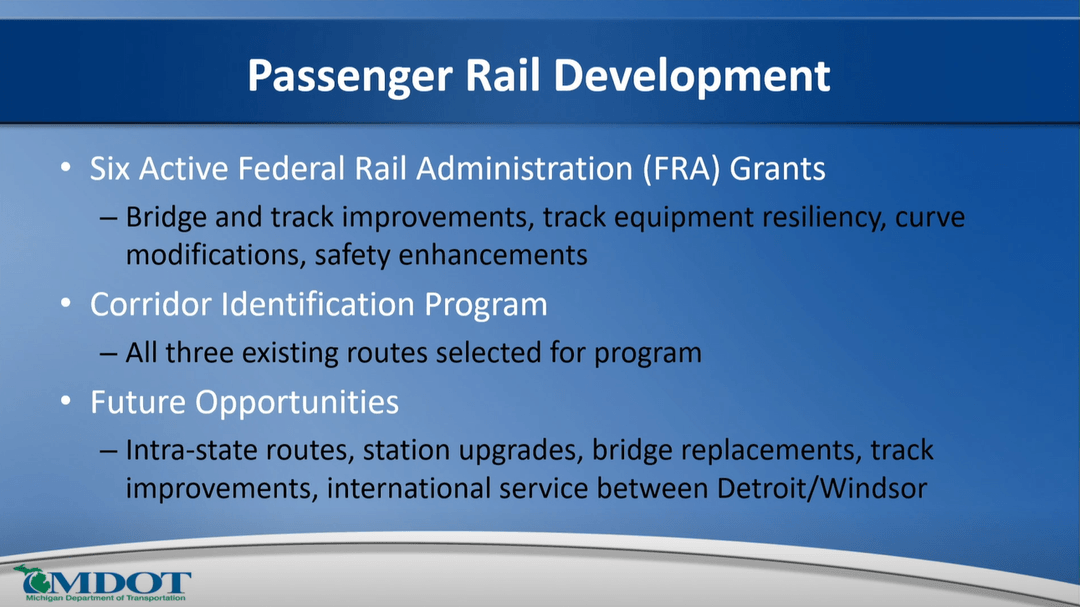
Anastor noted that Michigan has neither received federal formula funding for rail nor been awarded a Capital Investment Program grant from the Federal Transit Administration for any planned projects at the state level.
The Capital Investment Program provides funding for projects of “medium quality” or better based on expected ridership, areas served, frequency of service, and other metrics. Grand Rapids did successfully access funding from this program for the construction of the Laker Line , one of Michigan’s only transit routes that approaches the standards of Bus Rapid Transit. MDOT and the Michigan Infrastructure Office have stated on multiple occasions that the Laker Line is seen as the model for future projects to follow.
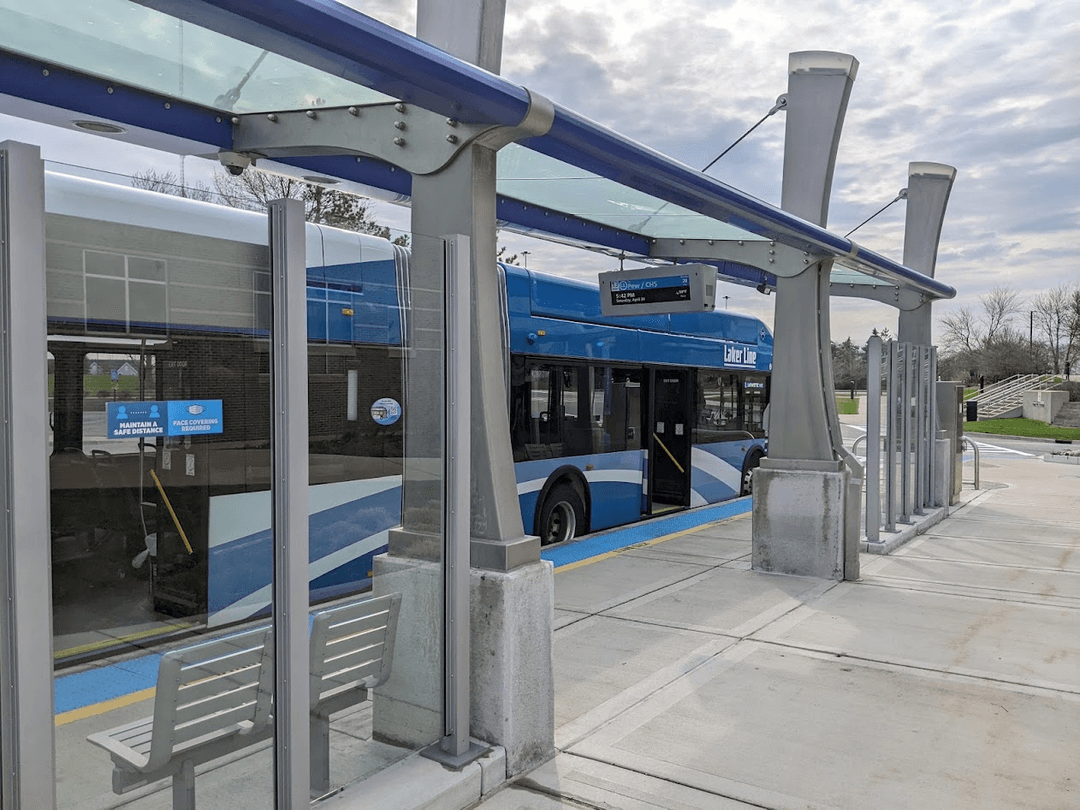
The Laker Line is seen here at Grand Valley State University in 2022. Both bus and rail projects are eligible for CIP funding.
While not directly mentioned by name, Anastor confirmed that discussions related to the Detroit to Grand Rapids rail corridor are ongoing.
In response to a question from Rep. Steckloff (D-Farmington Hills) , Anastor shared that the operational cost for Michigan’s Amtrak service is between $60M and $70M annually. The state contributes $20-$30M to this cost, with the remainder funded through revenue generated from ticket sales.
Conversations related to the Battle Creek crew base are ongoing . Amtrak is interested in shortening trip times and lowering costs, while Steckloff and officials from SMART-TD, the union which represents Amtrak workers, are interested in maintaining Michigan-based jobs and a crew base at the midpoint of the Blue Water and Wolverine for safety reasons.
Again, to clarify: The Battle Creek station is not closing. Blue Water and Wolverine passengers will still be able to board there. This conversation is related to the crew base. The decision to be made is whether trains will continue to stop for an extended period of time to facilitate a crew change, or whether the station will become a quick pick-up-and-go stop en route to Chicago like the other stations along the line.
Provider Testimony: SMART
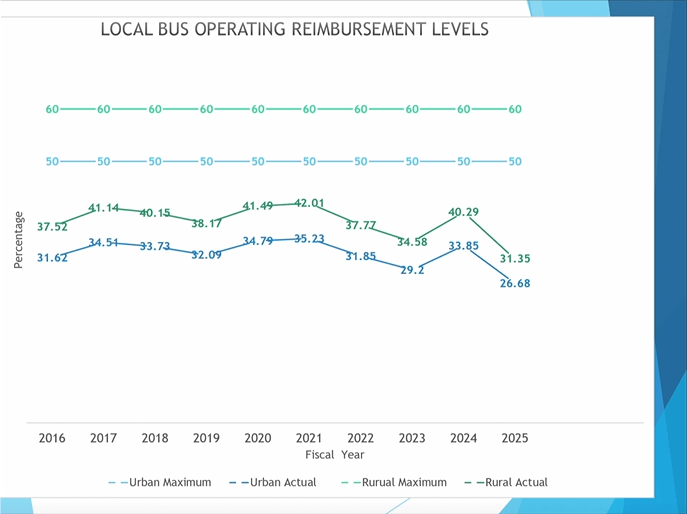
LBO reimbursement levels are expected to precipitously drop within the next two years unless the state legislature takes action.
Harmony Lloyd, VP of Planning at SMART, gave a presentation on behalf of the MPTA, of which SMART is a member along with other transit providers across Michigan. She offered several examples of transit services undergoing expansion and restructuring following both local millage efforts and the LBO funding increase in last year’s state transportation budget.
LBO funds critical operations of rural agencies such as the Roscommon County Transportation Authority which serves Houghton Lake, the Village of Roscommon, and surrounding areas in the Northern Lower Peninsula. These agencies often provide essential medical transportation as hospitals and clinics can be a considerable distance away for rural residents. Our rural providers have less local millage funding to fall back upon than our urban providers and rely almost solely on LBO for continued operation.
“This should not be considered innovative. Connecting communities and being able to help people go from one county to another, or one large community to another, should be what we do. The idea that these are new programs, and that they’re still considered innovative, shows how much work we have to do.” – Harmony Lloyd, SMART VP of Planning
MPTA is requesting that, at minimum, LBO be restored to the 2023-24 level of $261M, and that the legislature continue conversations long-term to reach the funding ceiling of 50% for urban providers and 60% for rural providers by the 2027 fiscal year.
Union Testimony: ATU Locals 1039 and 836
Steven Soliz, President of ATU Local 1039 (CATA, Lansing) and Melvin Turnbo, President of ATU Local 836 (The Rapid, Grand Rapids) offered testimony in support of increased LBO dollars.
Advocacy Organization Testimony: TRU and MARP
(Usual disclosure: I currently serve on TRU’s Board of Directors. TRU is also asking for an increase in LBO dollars in the FY2024-25 state transportation budget.)
Megan Owens, Executive Director of TRU, and Steve Vagnozzi, Governmental Affairs Coordinator at MARP, gave testimony urging the Appropriations committee to seek sustainable LBO funding to facilitate planned and future transit expansion.
I've provided coverage of TRU's annual meeting and MARP's annual meeting on my blog.
 Corey
Corey 